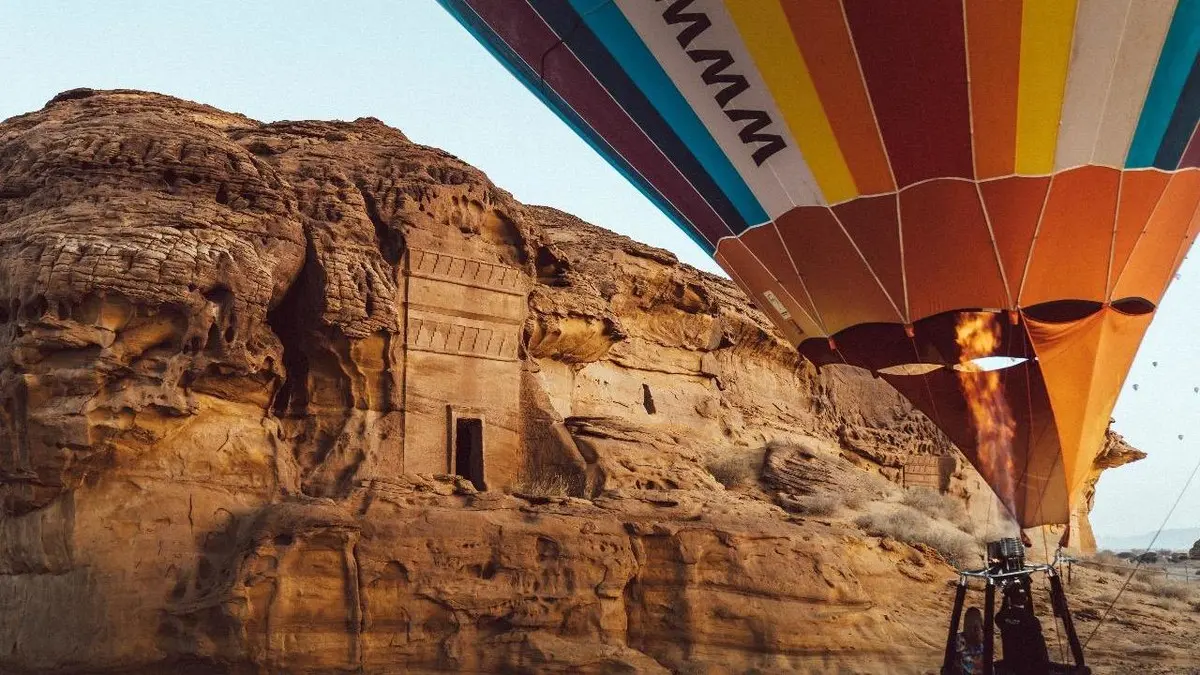In AlUla, desert sandstone holds the memory of caravans and kings, while the present-day oasis hums with creativity. Each winter, the Ancient Kingdoms Festival turns this timeless landscape into a stage where Dadan, Lihyan and Nabataean stories meet contemporary performance and community pride. The result is a heritage season that feels both rooted and alive.
What is the Ancient Kingdoms Festival?
The Ancient Kingdoms Festival is a cornerstone of the AlUla Moments calendar. Across 17 days, it transforms signature heritage sites Hegra, Dadan, Jabal Ikmah and AlUla Old Town into immersive learning grounds. Expect guided archaeology tours, open-air concerts, night-time light shows, storytelling, family workshops and curated trails that trace the Incense Road. The programme is designed to make history visible: the scripts of ancient traders, the geometry of Nabataean façades, and the rhythms of a living oasis community.
AlUla’s heritage is layered. Dadanite and Lihyanite kingdoms flourished here before the Nabataeans carved Hegra’s monumental tombs. Today, these layers are read not only by archaeologists but by guides, artists and local families who carry the stories forward.
Why AlUla Matters
AlUla is not a backdrop; it is the subject. The oasis connected Arabia to the Mediterranean and beyond, serving ancient trade routes that moved frankincense, myrrh and ideas. Its geology created natural corridors and dramatic outcrops, ideal canvases for inscriptions and tomb façades. Hegra, Saudi Arabia’s first UNESCO World Heritage Site, anchors this story with over a hundred rock‑cut tombs. Jabal Ikmah, often called an “open library,” preserves hundreds of inscriptions that chart linguistic, social and spiritual life.
During the festival, these places are not roped-off exhibits. They become settings for respectful night experiences, scholarly talks and soundscapes that echo across stone. The approach connects visitors to context: who lived here, what they believed, and how communities adapted to desert seasons.
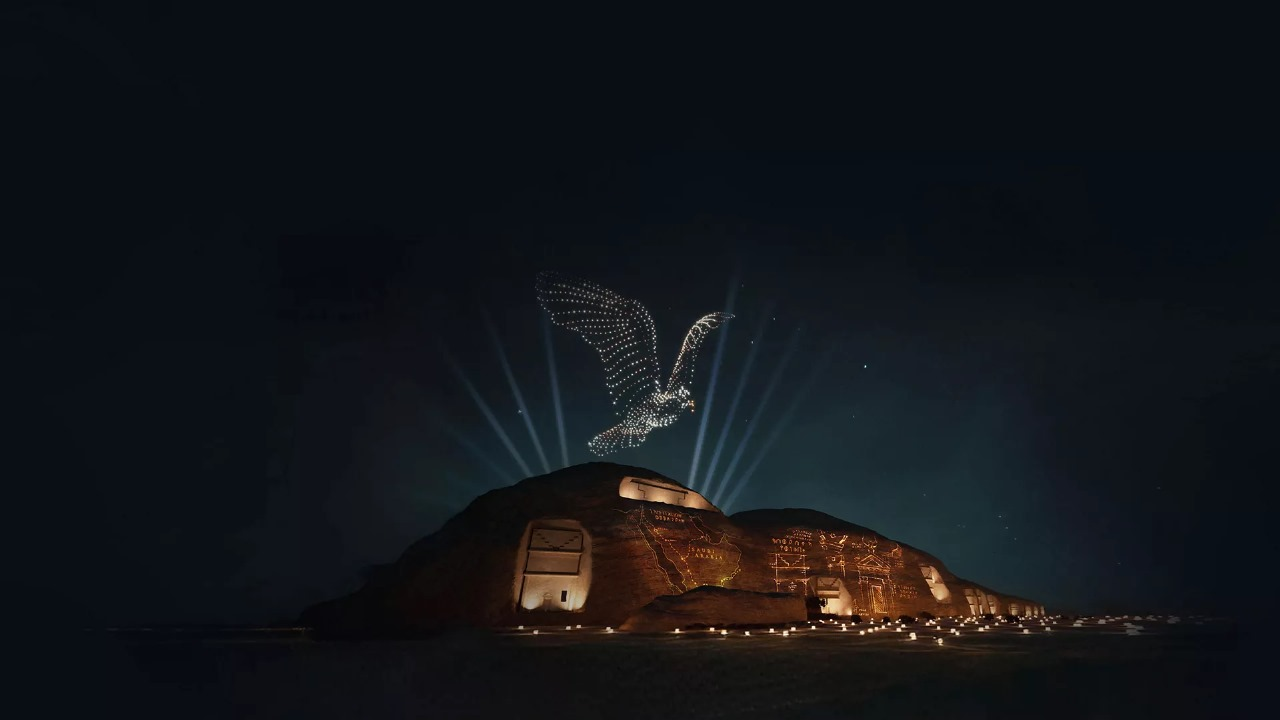
Signature Experiences
1) Hegra After Dark
At Hegra, evenings offer an atmosphere of quiet awe. Subtle lighting reveals carved details while guides share the stories of the Nabataean elite who commissioned these tombs. Depending on the season’s curation, performances or recitations may appear in carefully chosen settings, designed to protect the site and highlight its acoustics. It is a night that invites reflection: how monuments speak differently when the desert cools and the stars take their place.
2) Hegra Drone Show – Stories from the Sky
An award‑winning 1 hour 40 minute drone performance (20–29 Nov 2025) animates Hegra’s cliffs and tomb facades with narrative light. The choreography sketches trade routes, royal symbols and desert constellations, turning the skyline into a moving canvas while keeping the ground-level heritage undisturbed.
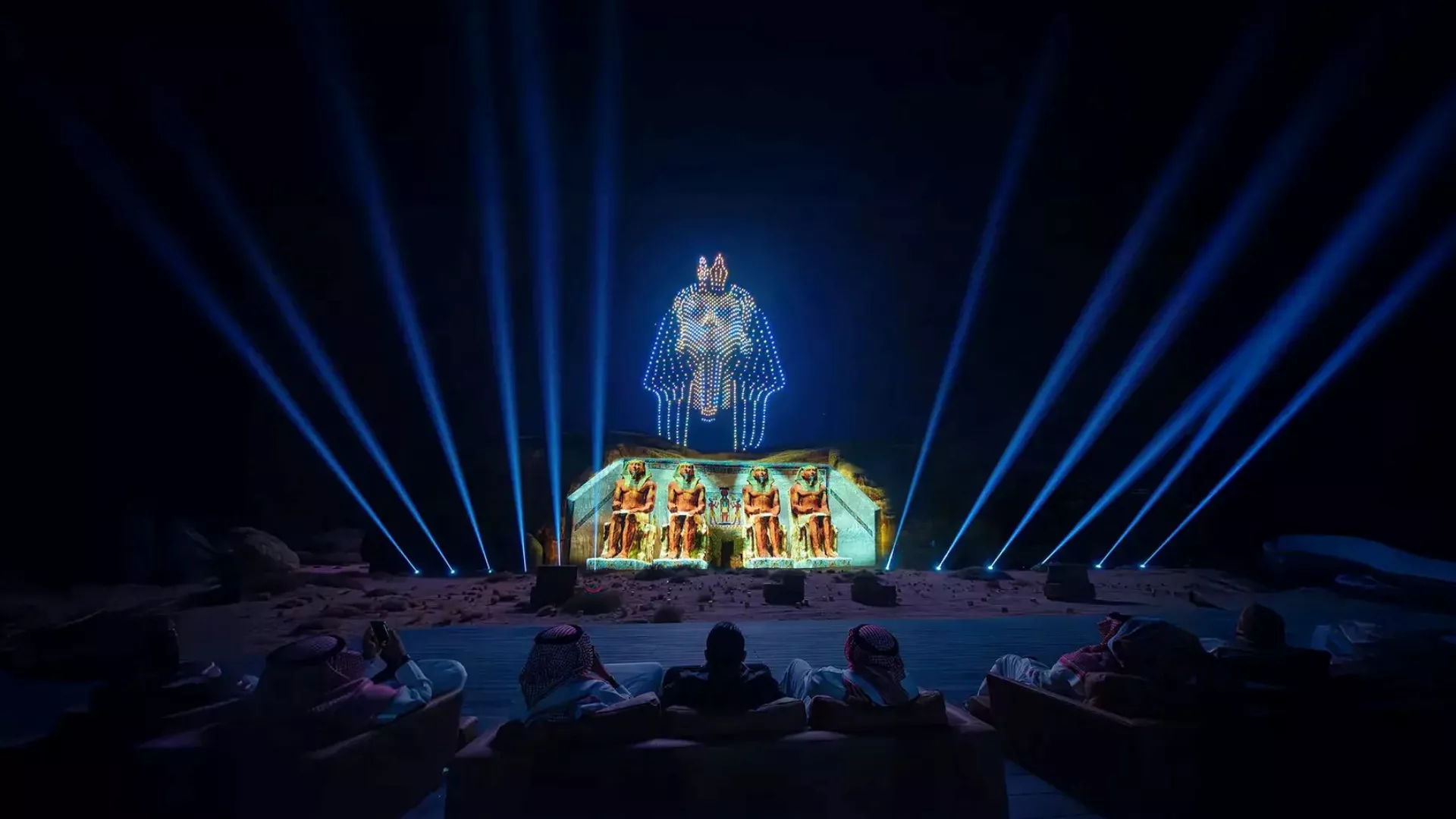
3) Jabal Ikmah: The “Open Library”
Jabal Ikmah is a natural corridor where travelers left their mark in scripts including Dadanitic and other ancient North Arabian forms. Festival programming often introduces the site at twilight or in soft evening light, helping inscriptions come alive. Visitors learn how to read the rock: lines of prayer, names, professions, and the echoes of a community that wrote for remembrance.
Secrets of the Scribe – Ikmah After Dark brings this knowledge into an atmospheric night setting. In a guided 1 hour 15 minute experience (available 20 Nov 2025–14 Feb 2026), sensitive lighting and storytelling reveal how Dadanite scribes worked, why certain messages were carved here, and how to read key signs without touching the stone.
Jabal Ikmah’s corpus of inscriptions has been recognized internationally for its documentary value. For many, it is the most accessible introduction to reading the region’s pre‑Islamic languages on stone.
4) Dadan & The Incense Road
The archaeological site of Dadan reveals a city of stonemasons and administrators, home to sophisticated water systems and statues that speak to statehood. Guided experiences explain how Dadanite and later Lihyanite rule organized life in the oasis and sustained long-distance trade. In the Old Town, The Incense Road experience uses streets, scents and storytelling to map how commodities and culture traveled, and how hospitality formed a moral code in the desert.
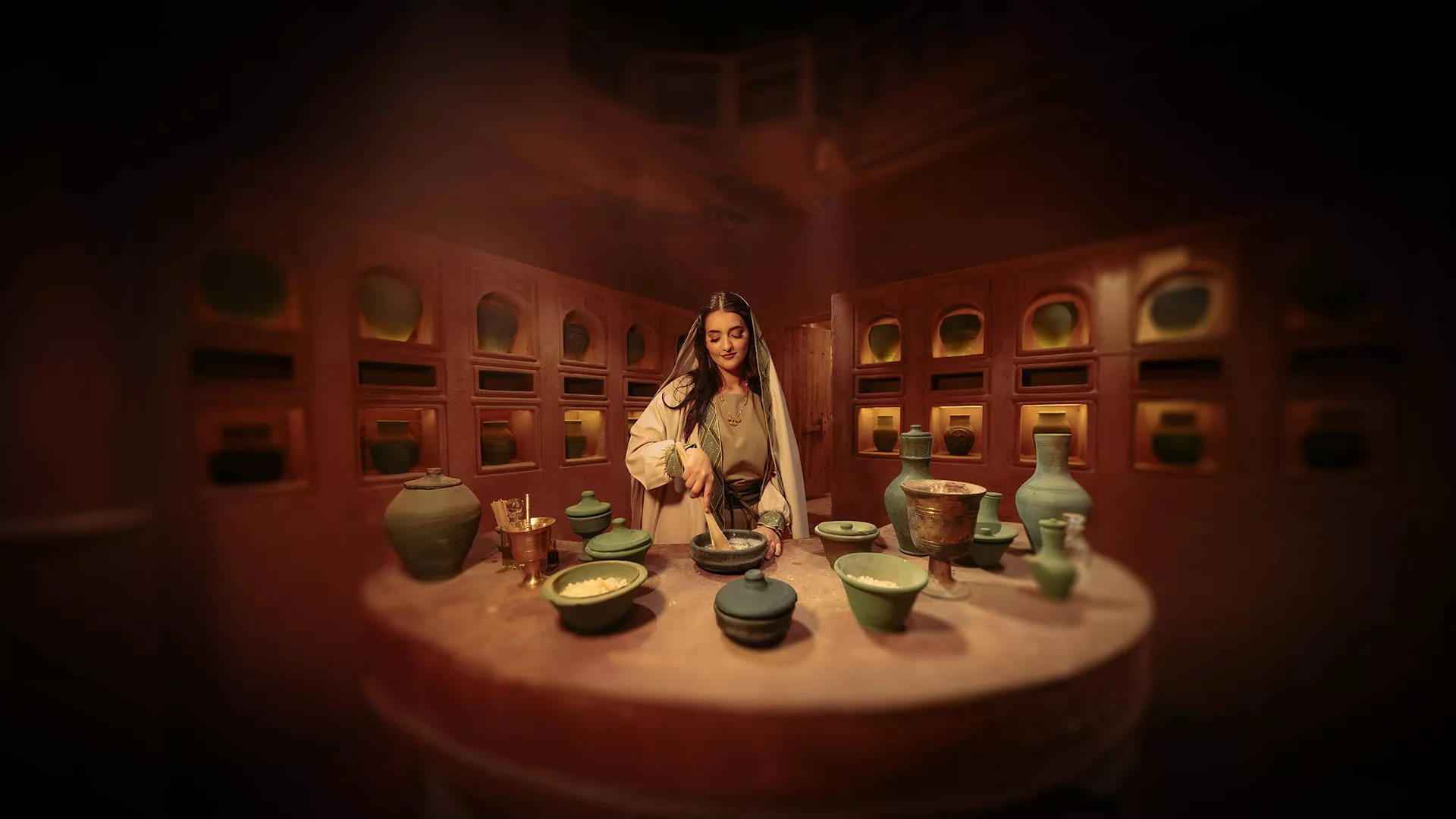
5) Awaken the Tales – Old Town Escape House
This story‑driven escape‑house adventure (1 hour 10 minutes; 20 Nov 2025–24 May 2026) turns AlUla Old Town into a living puzzle. Clues draw on local legends, merchant lore and historic architecture, offering families and friends a playful way to learn the Old Town’s social history while moving through its lanes respectfully.

6) Family Workshops & Archaeology-Informed Activities
For families, the festival creates entry points to complex history: pottery sessions that mirror ancient forms, inscription-rubbing demonstrations, and guided treasure trails that teach site etiquette. Young visitors leave with practical knowledge: what a façade detail means, how to respect a tomb boundary, and with a sense of belonging to a longer story.
Hegra Children’s Tour in particular adds a dedicated 90‑minute circuit (20 Nov–5 Dec 2025) tailored to curious minds. Interactive stops, simple map‑reading and gentle storytelling help children grasp why Hegra is protected and how to be a good guardian of heritage.
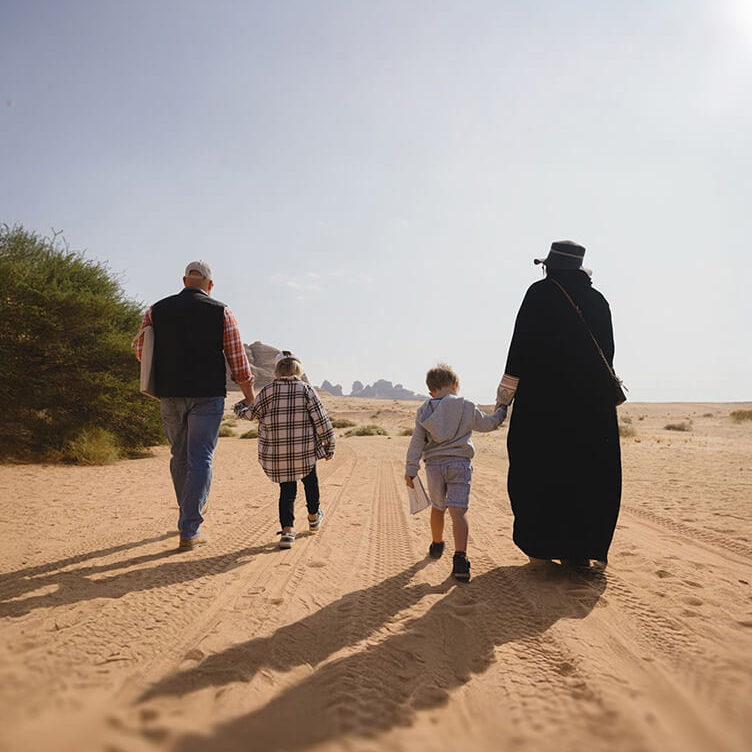
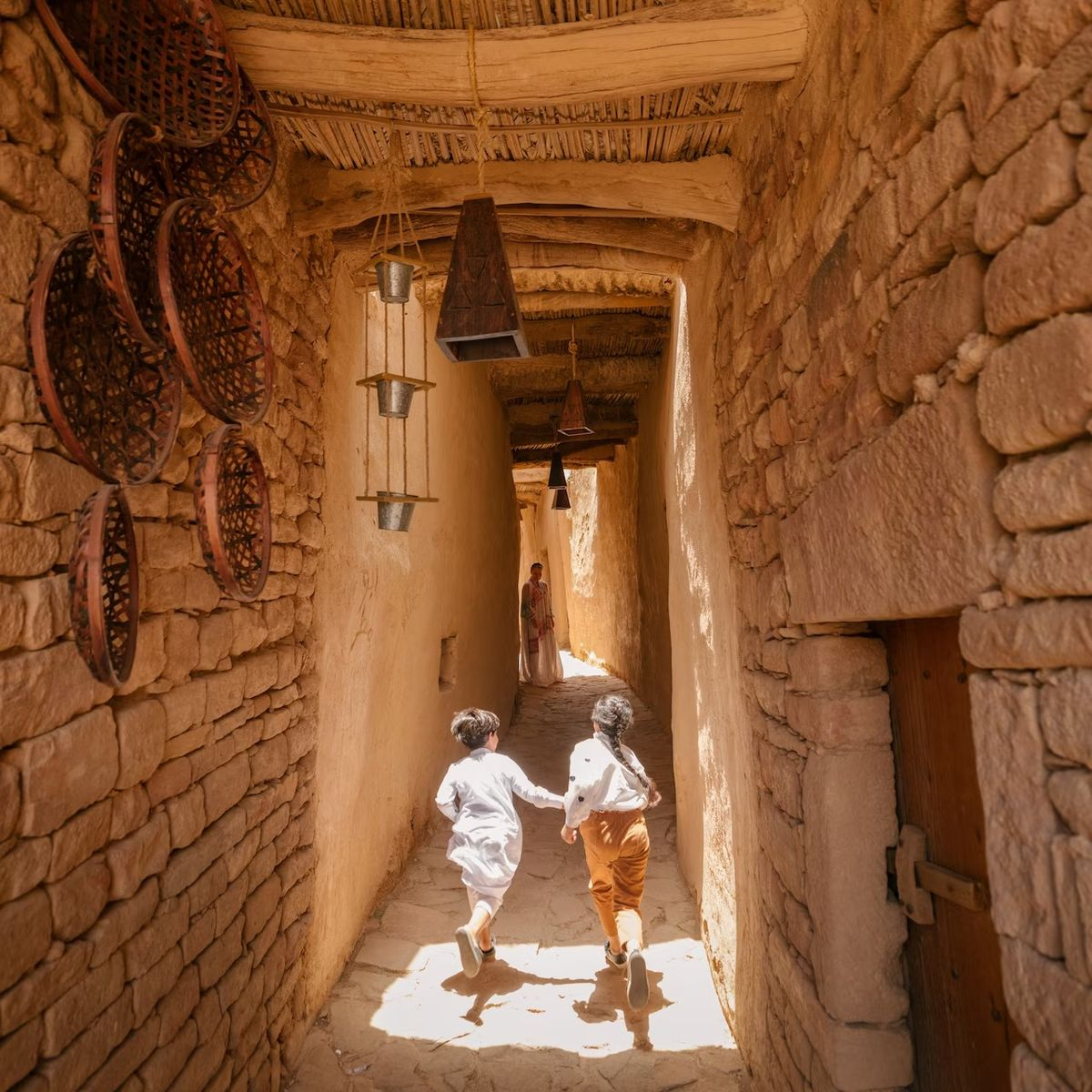
What to Expect on the Ground
A Festival Designed Around Heritage Etiquette
The festival’s logistics reflect conservation priorities. Group sizes are managed, access routes are planned to reduce impact, and night programmes use lighting that preserves the desert’s dark-sky character. Guides are trained to communicate not only facts, but responsibilities. No touching inscriptions, no climbing façades, and an appreciation of silence in sacred zones.

Seasonal Comforts
Late November and early December bring cooler nights and clear mornings. Layers are recommended; desert temperatures can swing between sunny daylight and crisp evenings. Comfortable footwear is essential, and reusable water bottles are encouraged as part of a sustainability ethos that values the oasis.
Hospitality in an Oasis City
AlUla’s hospitality ranges from traditional farm stays and guesthouses to contemporary resorts. Dining often features oasis produce such as dates, citrus, herbs, and seasonal dishes inspired by regional kitchens. Many venues contribute programming during the festival, from pop-up tastings to storytelling dinners that trace recipes through time.
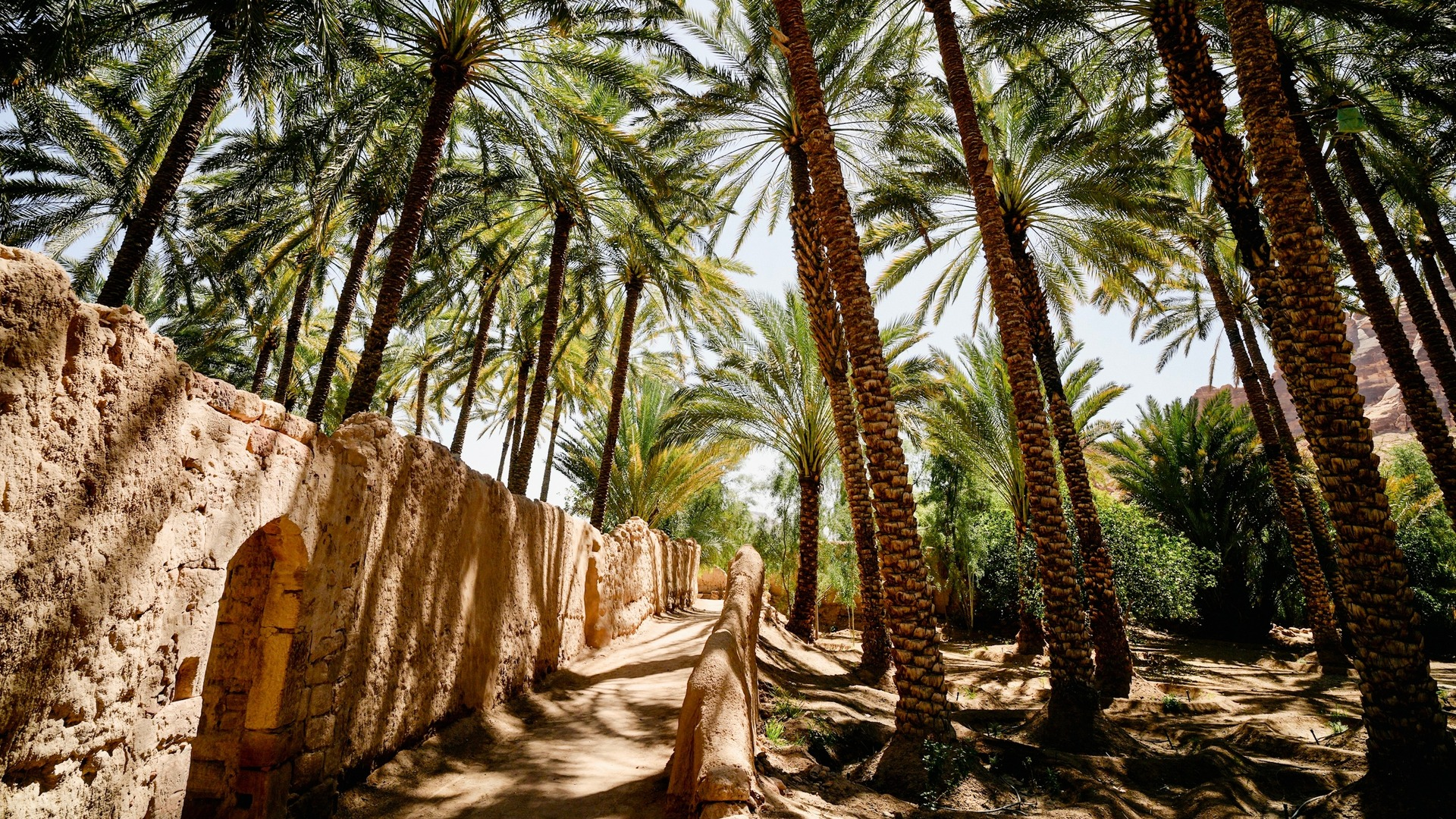
The Old Town’s mudbrick lanes once housed markets and family courts. Today, they host artisan shops and cultural venues that keep the heart of AlUla beating year-round.
How the Festival Supports Preservation
The Ancient Kingdoms Festival is as much about stewardship as celebration. Ticketed events help fund conservation work and interpretation programmes. Partnerships with archaeologists and curators ensure that narratives remain accurate and respectful. Local youth are trained as guides, craftspeople and performers, linking job creation to heritage care.
This model is part of a wider Saudi cultural evolution: making heritage accessible while protecting it. Modern lighting technologies minimize heat and glare on stone. Wayfinding uses reversible materials. Visitor data informs carrying-capacity decisions. The goal is continuity, so that the tomb carvings, inscriptions and city plans endure beyond the festival’s calendar.
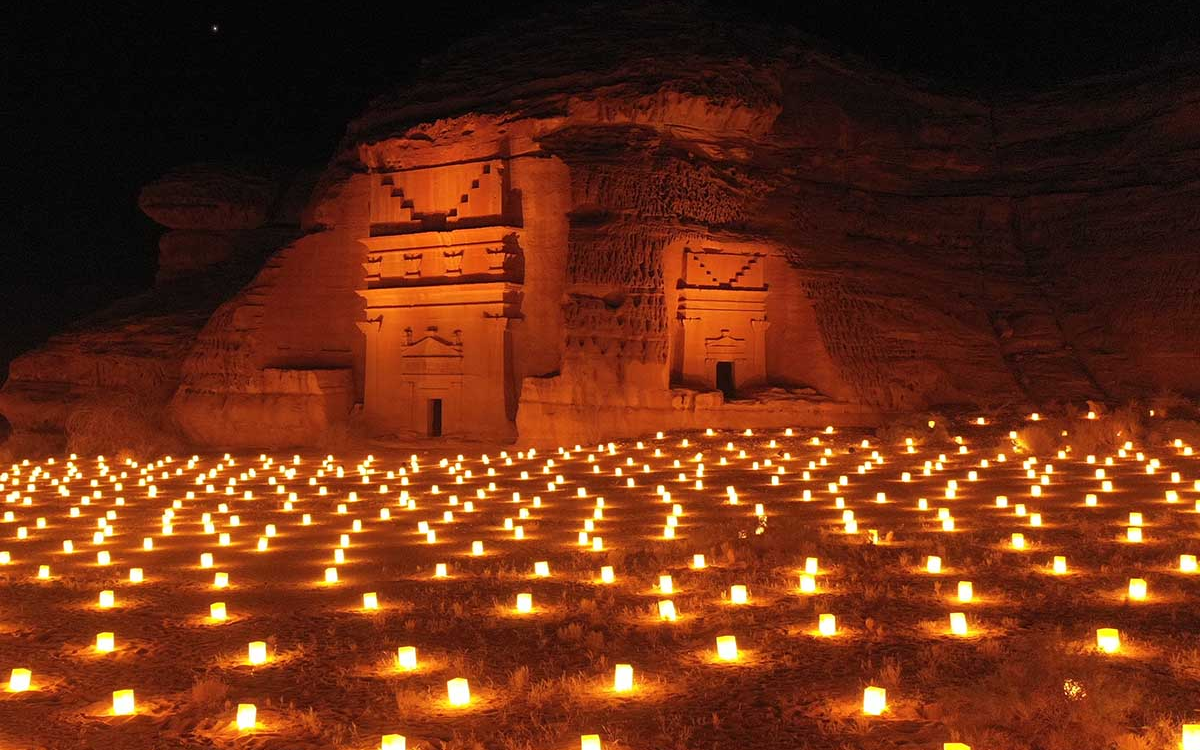
For Researchers and Culture Lovers
The festival is an excellent entry point to deeper study. Many sessions draw on current archaeology, epigraphy and conservation science. Public talks may introduce new finds or methods such as photogrammetry for tomb mapping or multispectral imaging for inscriptions. For culture lovers, the blend of scholarship and atmosphere is compelling: a place where evidence and emotion coexist.
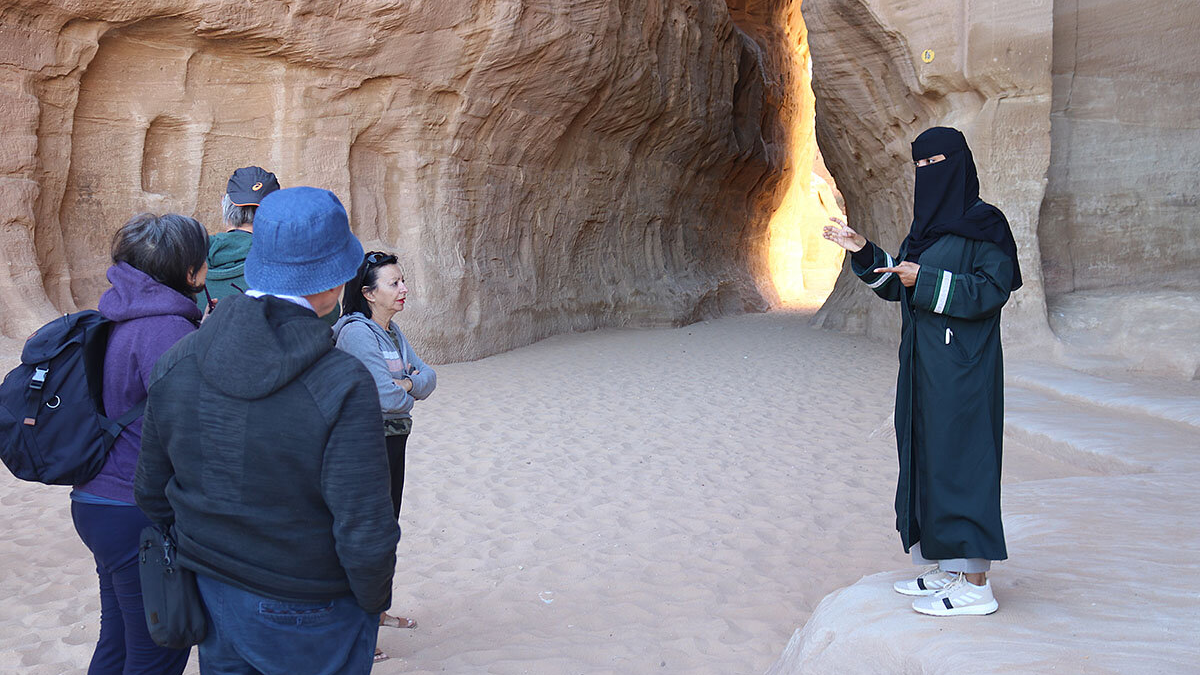
A Note on Language and Community
AlUla’s story is bigger than its stones. It belongs to families whose grandparents farmed date palms, to craftspeople who keep palm-weaving alive, to guides who grew up naming each sandstone outcrop. During the festival, visitors often encounter community voices through oral histories, market interactions or school performances that remind everyone that heritage thrives when it is shared.
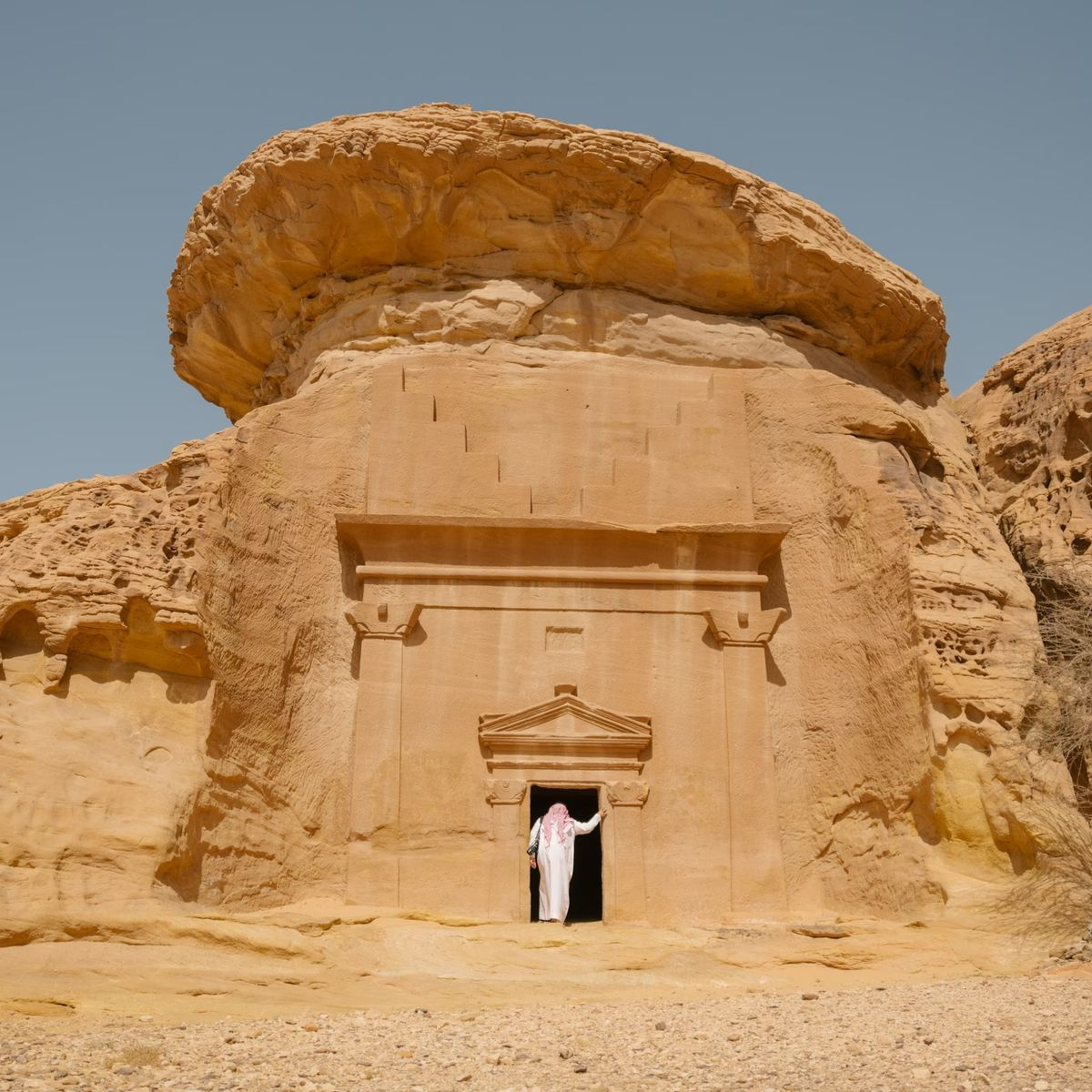
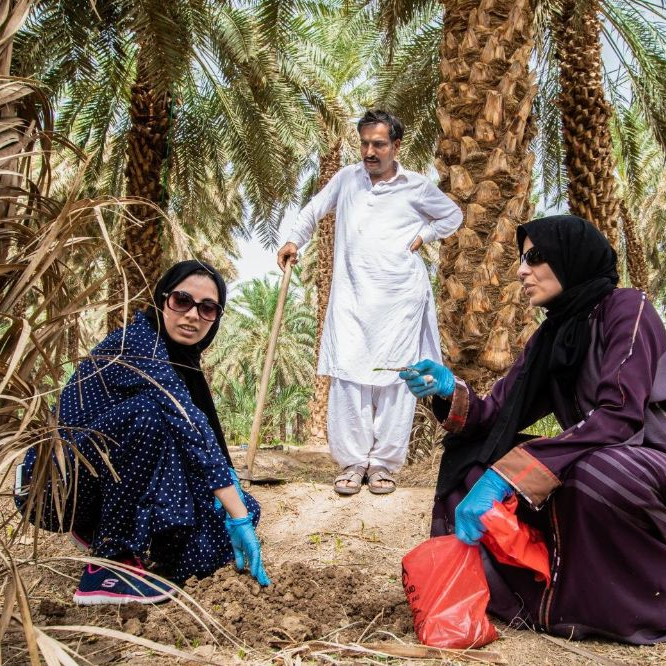
Closing Reflection
The Ancient Kingdoms Festival proves that heritage can be both quiet and powerful. In AlUla, memory is not locked in glass; it breathes in the pause before music, in the inscription a child traces with a flashlight, in the footsteps that return to Old Town at dusk. The festival’s strength is not only what it shows, but what it sustains: respect, knowledge and connection.
For Saudi readers, it is a season to walk amid the work of ancestors and recognize their modern echoes. For global visitors, it is an invitation to learn with humility and delight. Either way, AlUla offers a lesson: when history is honored with care, it becomes a guide for the future.
Follow the Kingdom’s Cultural Calendar
Subscribe to Saudi Cultures for weekly updates on events, heritage, and voices across the Kingdom.
